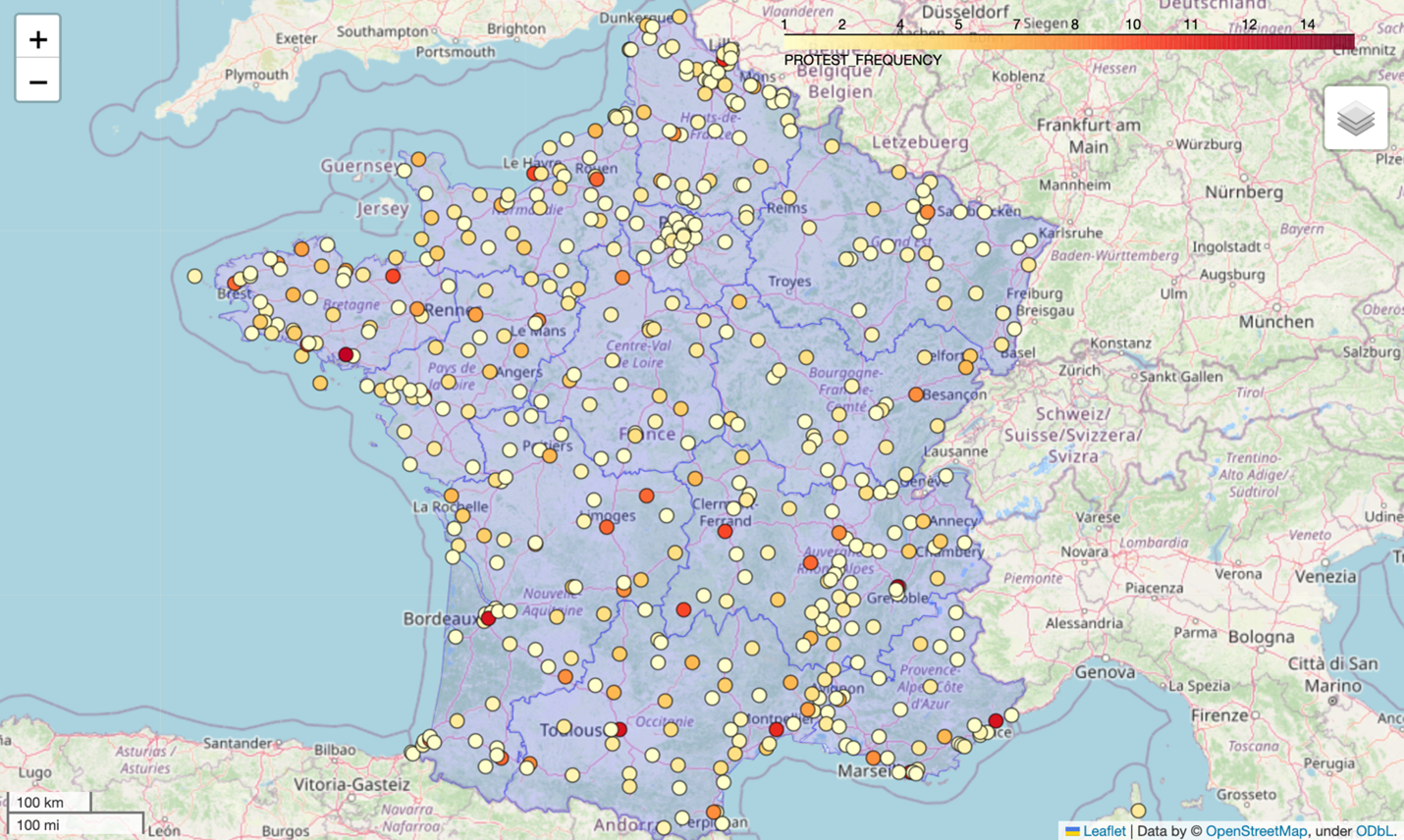By Klaudia Kokoszka and Geraint John
Companies doing business in France should expect further disruption to supply chain operations after the country’s Constitutional Council ruled today that controversial pension reforms could proceed into law.
The move by President Macron’s government to increase the state pension age from 62 to 64 has led to mass protests and strikes across France in recent weeks. The protestors include trade unions, political activists, and citizens opposed to the change.
Hundreds of thousands of people took part in demonstrations on Thursday, ahead of the council’s decision. One group of protestors stormed the headquarters of luxury goods giant LVMH in Paris.
The protests of the past month have impacted oil refineries, utilities, railways, and financial services firms, among others.
French Protests Are Spread Across the Country
France currently has one of the lowest retirement ages among developed economies. French people, on average, stop work four years earlier than in countries such as Germany, Spain, the U.K., and the U.S. Despite this, the proposed reforms have attracted strong opposition, some of it violent, in many parts of the country.
Interos analysis of data from the Armed Conflict Location & Event Data Project (ACLED) shows that protests have taken place in more than 450 different locations across France (see map). Numbers involved range from a few dozen people in small towns to tens of thousands in major cities such as Paris and Nice.
Examining the Supply Chain Impact of Protests

Source: Interos Insights using data from Armed Conflict Location & Event Data Project (ACLED), 2023. Image Copyright: © OpenStreetMap,Data is available under the Open Database License.
Almost five million businesses have operations in the areas affected, according to Interos’ data. The biggest impacts of labor demonstrations so far have been property damage, disrupted operations, and transport problems. Some of these have already had ripple effects along supply chains.
Strikes at oil refineries owned by Esso and TotalEnergies had a negative impact on global markets in March. 500,000 barrels of daily processing capacity – 0.5% of global oil consumption – are thought to have been affected.
Disruptions at a lesser scale have occurred at nuclear, thermal, and hydropower plants operated by firms such as Engie and EDF. These disruptions have reduced French power capacity by 15.6 gigawatts.
This week, the transit of goods flowing on the Rhine river was disrupted for the second time during the protest period. Workers cut power to the Kembs lock south of Strasbourg, France and near the German and Swiss borders. This has halted all river traffic through the area since Wednesday evening. The Rhine remains one of Europe’s busiest rivers and a disruption of this type could heavily impede cross-border trade.
To illustrate the scale of supply chains at risk, according to Interos insights, the affected firms mentioned in this article have at least 360 direct customers, 68 thousand second-tier customers, and 18 million third-tier customers. Even small changes in supply chains of this magnitude may cause notable ripple effects.
French Action Part of a Global Pattern of Unrest
The events in France are part of a growing trend of labor strikes, public protests, and general civil unrest across Europe and around the world this year.
In Germany, protests and strikes have taken place in nearly 70 different locations since mid-March. They have been primarily concentrated in the airline, rail, postal, and public education sectors.
Industrial action has also taken place in the U.K. in these and other sectors such as healthcare in recent weeks. There workers are demanding substantial pay increases to counter high inflation and the cost-of-living crisis.
Italian trade unions, meanwhile, have organized a national rail strike today against what they see as worsening working conditions and insufficient pay.
In Israel, thousands of people continue to protest against judicial reforms initiated by the Netanyahu government. Political grievances have also been motivators for protests in Nigeria and Peru in recent months. These have created a moderate risk to global trade in commodities, particularly petroleum and precious metals.
How Organizations Should Respond to Supply Chains Disrupted by Protests
Procurement leaders and organizations with supply chain operations in France and other affected regions should:
- Ensure they have visibility of both critical direct (tier-1) suppliers and indirect (tier 2, 3+) suppliers that could be impacted by strikes and civil unrest.
- Keep communication lines open with key supply partners in order to get early notification of any disruptive events.
- Review alternative sources of essential materials, parts, products, and services from suppliers in other geographic areas.
- Monitor geopolitical events and risks in France and other strike-affected countries especially closely over the next few weeks.
With inflationary pressures stemming from Russia’s war in Ukraine and other sources continuing to be felt in many economies, it is possible that civil unrest could spread further across Europe in the near term. Organizations therefore need to be ready to respond quickly to additional disruption along their extended supply chains.



